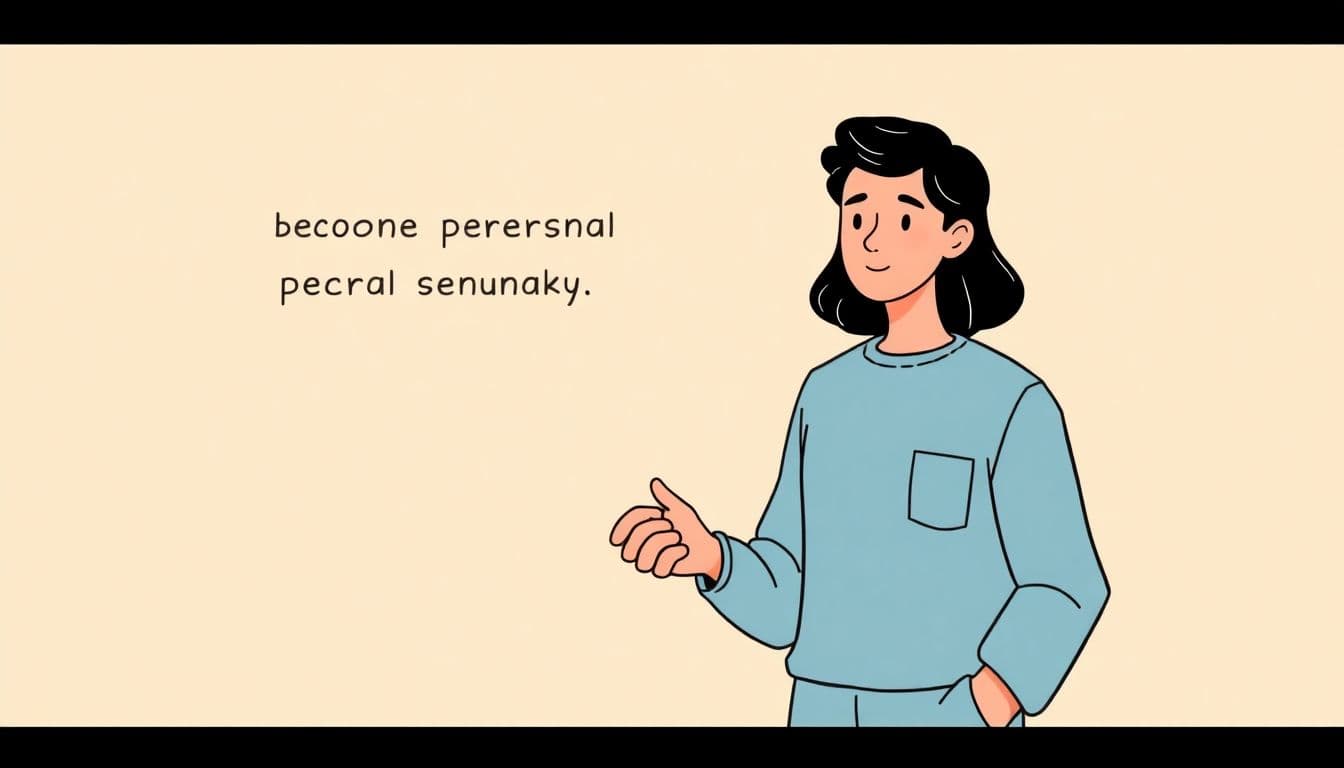Table of Contents
When it comes to sparking creativity in writing, love writing prompts can be a game-changer. Have you ever sat down with a blank page, longing for inspiration, only to find your mind as empty as that page? You’re not alone! Many writers face this daunting challenge. But don’t fret—help is on the way!
If you keep reading, you’ll discover how love writing prompts can unlock your creativity and guide you toward crafting beautiful stories and heartfelt letters. Trust me, your writing journey is about to get a whole lot more exciting!
We’ll explore various types of love writing prompts, tips for using them with ChatGPT, and even some fantastic examples to get your imagination flowing. Get ready to dig deep into love, relationships, and the art of storytelling!
Key Takeaways
- Love writing prompts can kickstart creativity when facing writer’s block.
- Explore various types of prompts like romantic, fun, quirky, and reflective to find your inspiration.
- Using ChatGPT with specific prompts can lead to better and more aligned writing responses.
- Combining different prompts can help create unique and original stories.
- Customizing prompts to different genres or audiences enhances connection and imagination in your writing.

Writing prompts related to love can ignite your imagination and help breathe life into your creative writing endeavors. Love writing prompts are designed to inspire and challenge you, pushing you to explore different facets of romance, relationships, and emotional connections. They can serve as a springboard for new stories, poems, or even personal essays, making them a valuable tool for both novice and experienced writers.
Love writing prompts can stir up creativity in unexpected ways. When you’re faced with a blank page, a well-crafted prompt can spark ideas, trigger memories, or even open doors to emotions you didn’t know you wanted to explore. Whether it’s inserting your characters into romantic scenarios or reflecting on your past experiences, these prompts can guide you toward crafting unique and heartfelt narratives.
Types of Love Writing Prompts
Now that we’ve established the essence of love writing prompts, let’s delve into the various types you can experiment with. Each type offers its own flavor and can evoke different responses from your imagination, allowing you to explore love from various angles.
Romantic prompts
Romantic prompts are the classic go-to for exploring love in its most enchanting forms. This category can range from sweet and tender to downright passionate.
First date scenarios
Imagine this: two characters on their first date, facing the usual jitters but also filled with excitement. You could write about their dinner conversation, unexpected surprises, or a mishap that leads to an unforgettable moment. The beauty of first date prompts is the inherent tension and anticipation that can lead to later revelations.
Love letters
A love letter prompt can transport you back in time—or to a fictional world. Create a scenario where a character pours out their heart on paper, perhaps confessing their feelings to someone they’ve long admired. This type of prompt not only captures emotion but also allows for character development as the writer dives into their thoughts and vulnerabilities.
Fun and quirky prompts
If you’re looking for something lighter or more unconventional, fun and quirky prompts might be up your alley. These prompts often take love in unexpected directions, allowing for creativity and humor.
Love stories with a twist
Think about weaving a love story that defies traditional norms. Maybe it’s set in outer space, involving intergalactic misfits who stumble upon love despite the odds. A quirky twist can turn the ordinary into the extraordinary, making the narrative both entertaining and engaging.
Characters in unusual situations
Take love outside its traditional boundaries by placing characters in absurd or unusual scenarios. Imagine two people who meet during a quirky event like a chicken dance-off or while trapped in an elevator. Such prompts challenge you to explore how love can blossom in the most unexpected places, sparking intrigue and laughter.
Reflective prompts
If you’re in the mood for something a little deeper, reflective prompts are perfect for mining personal experiences or exploring relationships.
Personal love experiences
Turn introspective and write about a significant love experience from your own life. It could be a lesson learned from a breakup or a cherished moment with a partner. Reflective prompts allow you to connect with your emotions and translate them into powerful, relatable narratives.
Lessons learned from relationships
Consider a prompt that asks you to distill the lessons learned from past relationships. What wisdom have you gathered? How have these experiences shaped your understanding of love? This isn’t just about storytelling; it’s an opportunity for personal growth and self-discovery through your writing.

Tips for Using Love Writing Prompts with ChatGPT
Using love writing prompts with ChatGPT can be a game-changer for your creative process.
The key lies in crafting effective prompts that give ChatGPT clear directions.
Start by being specific about what you want.
For instance, instead of saying “write a love story,” you might say, “create a romantic scenario between two characters who just met at a coffee shop.” This clarity will help generate more aligned responses.
How to Craft Effective Prompts
Effective prompts guide the conversation and yield better results.
Think about what elements you want to include.
Do you want to focus on character development or specific settings?
Consider breaking your prompts into parts: ask for dialogue, character traits, and emotional tone.
For instance: “Describe a scene where two friends confess their feelings at sunset,” gives room for exploration while still remaining focused.
Engaging with Responses for Deeper Writing
Getting responses from ChatGPT is just the beginning.
To deepen your writing, engage critically with the responses.
Ask follow-up questions to clarify, expand on ideas, or explore different angles.
For instance, if ChatGPT gives a great setting description, you might ask, “Can you give me more emotional context for this scene?”
This back-and-forth can lead to rich narrative layers and character depth.
Combining Prompts for Unique Stories
If you’re feeling adventurous, try combining multiple prompts.
Mixing genres or themes can lead to original ideas that surprise even you.
For instance, take a romantic prompt and add a quirky twist—like a romantic dinner that suddenly turns into a cooking competition.
The unconventional combination can ignite your imagination in unexpected ways.
Examples of Love Writing Prompts
Now that you’re equipped with tips, let’s look at some examples of love writing prompts.
Simple and Short Prompts
Sometimes the best ideas come from short and sweet prompts.
Here’s a quick list to get your creative juices flowing:
- “Write a text message between two characters falling for each other.”
- “Describe a fleeting glance that changes everything.”
- “Start with the line, ‘I never expected to find love in the middle of a storm.’”
These prompts are light and easy to explore, perfect for a quick write.
Detailed Scenarios for Longer Writing
On the other hand, if you’re ready for a deeper dive, here are some more detailed scenarios:
- “Two people meet at a wedding, but one is secretly in love with the bride.”
- “A couple navigates the emotional rollercoaster of planning their dream vacation, only for it to unravel spectacularly.”
- “Imagine a world where love can be bought. Write about two characters who find true love amid this twisted reality.”
These prompts allow for character exploration and complex storytelling.
Prompts for Character Development
Love prompts can also serve as a powerful tool for character development.
Here are some prompts that focus on character backstories and interactions:
- “Write about a character’s first crush and how it shaped their views on love.”
- “Create a dialogue between two characters who have been friends for years but have hidden feelings for each other.”
- “Describe a character writing a letter to a past love and recounting the significant moments they shared.”
Such prompts force you to delve into emotions and motivations, building complex characters.
How to Customize Love Writing Prompts
Customizing love writing prompts allows you to make them feel uniquely yours.
Adapting Prompts to Different Genres
One of the best aspects of writing prompts is their adaptability.
For instance, if you normally write contemporary romance, try adapting a prompt to fit a fantasy or sci-fi genre.
Imagine, “Two star-crossed lovers from rival planets…” instantly changes the narrative possibilities.
Adjusting prompts allows you to explore new territories in your creative writing.
Personalizing Prompts for Specific Audiences
Consider who will be reading your stories when customizing prompts.
If you’re writing for a young adult audience, you might frame prompts around relatable themes like first love or friendship.
For example, “Write about an awkward school dance where two friends confront their feelings,” resonates well with that age group.
Targeting your prompts ensures they connect with your audience on a deeper level.
Using Prompts to Build on Existing Ideas
Don’t overlook the potential of using prompts to expand on your existing ideas.
If you have a character you’re developing, a prompt could help you dive deeper into their backstory.
Try something like, “What was the moment they realized they were in love?”
This method not only enriches your characters but can also lead to plot twists that invigorate your story.

Benefits of Using Love Writing Prompts
Using love writing prompts can lead to numerous benefits that enhance both your writing process and your creative output.
Boosting Creativity and Inspiration
At their core, love writing prompts serve as powerful tools to spark creativity.
They encourage you to think outside the box, breaking through writer’s block.
Just a single prompt can lead to a flurry of ideas, igniting your imagination in unexpected directions.
Enhancing Writing Skills
Writing regularly helps improve your skills, and love writing prompts provide an excellent avenue for practice.
By exploring various scenarios and emotions, you strengthen your voice and style.
Moreover, the act of writing about love can sharpen your emotional intelligence, enabling you to convey deeper feelings in your stories.
Exploring Emotions and Relationships Through Writing
Love writing prompts allow you to delve into the complexities of emotions and relationships.
This exploration can lead to personal insights and a better understanding of your own feelings.
Writing about love prepares you to tackle the highs and lows of human connections in a more nuanced manner.
Conclusion
In summary, love writing prompts can enrich your writing experience by providing inspiration, enhancing your skills, and allowing you to delve into emotional depths.
They not only help you break through creative barriers but also encourage self-reflection and development as a writer.
So why not give it a go?
Try experimenting with different prompts using ChatGPT to see what unique stories unfold.
You might just discover new facets of love and creativity that you never thought possible.
FAQs
Love writing prompts are creative ideas designed to inspire writers in exploring themes of love. They serve as starting points to spark imagination, facilitate writing exercises, and encourage deeper emotional expression in creative writing.
To use love writing prompts with ChatGPT, craft clear and engaging prompts, encourage nuanced responses, and combine different prompts to create multifaceted stories. This interaction can lead to unique narrative outcomes and deeper character insights.
Using love writing prompts boosts creativity, enhances writing skills, and provides opportunities to explore emotions and relationships. They help writers overcome blocks, generate new ideas, and delve deeper into personal or fictional narratives surrounding love.
You can customize love writing prompts by adapting them to various genres, personalizing them for specific audiences, and using them to build on existing ideas. This approach enhances relevance and enriches the writing experience.



